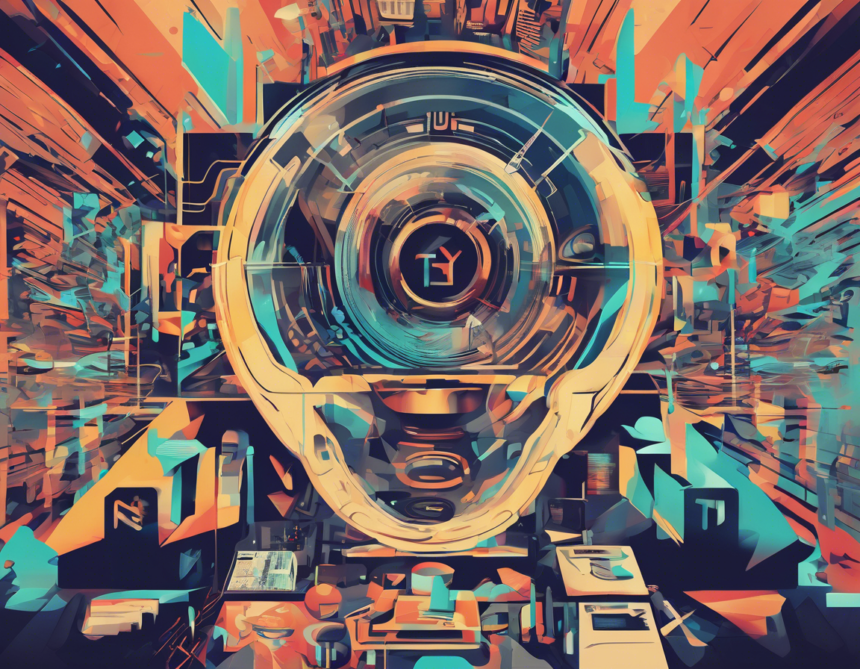In an era of information overload and misinformation, the concept of “DYOR” (Do Your Own Research) has gained significant traction across various fields. This approach, which emphasizes personal investigation and critical thinking, is reshaping how individuals consume and interpret information, particularly in fast-moving sectors like finance, technology, and health.
The Rise of DYOR Culture
The DYOR movement has experienced a surge in popularity, especially within the cryptocurrency and investment communities. “DYOR has become a mantra for responsible decision-making in volatile markets,” explains Dr. Sarah Chen, a financial behavior analyst at Stanford University[1]. This approach encourages investors to thoroughly investigate assets before committing funds, rather than relying solely on external advice or market hype.
Impact on Information Consumption
Shifting Trust Dynamics
The DYOR philosophy is fundamentally altering how people interact with information sources. Traditional media and expert opinions are increasingly scrutinized, with individuals seeking primary sources and raw data. “We’re seeing a shift from passive consumption to active verification,” notes media psychologist Dr. Marcus Holloway[2].
Tools and Techniques
To facilitate effective research, new tools and platforms have emerged:
- Fact-checking websites
- Open-source databases
- AI-powered research assistants
These resources are empowering individuals to cross-reference information and draw their own conclusions.
DYOR in Healthcare Decisions
The healthcare sector has witnessed a significant impact from the DYOR approach. Patients are increasingly researching their conditions and treatment options before consulting healthcare professionals. Dr. Elena Rodriguez, a public health expert, states, “While informed patients can lead to better health outcomes, it’s crucial to balance self-research with professional medical advice”[3].
Challenges and Criticisms
Information Overload
One of the primary challenges of DYOR is the sheer volume of information available. “The abundance of data can be overwhelming, leading to analysis paralysis,” warns information scientist Dr. Akira Tanaka[4]. This overload can sometimes result in individuals cherry-picking information that confirms their existing biases.
Expertise vs. Amateur Research
Critics argue that DYOR can lead to a devaluation of expert knowledge. “There’s a fine line between healthy skepticism and dismissing valuable expertise,” cautions Dr. Lisa Fenton, a professor of sociology at Columbia University[5]. The challenge lies in distinguishing between credible sources and misleading information.
DYOR in Education
Educational institutions are adapting to the DYOR trend by emphasizing critical thinking and research skills. “We’re shifting from rote learning to teaching students how to effectively find and evaluate information,” explains Dr. Robert Chang, an education policy expert[6].
The Future of DYOR
As technology evolves, so too will the tools and methods for conducting personal research. Artificial intelligence and machine learning are expected to play a significant role in enhancing DYOR capabilities.
Emerging Technologies
- Advanced data visualization tools
- Personalized AI research assistants
- Blockchain-based verification systems
These innovations promise to make DYOR more accessible and efficient for the average person.
Balancing Act: DYOR and Expert Guidance
The key to effective DYOR lies in striking a balance between personal investigation and expert insight. “The goal isn’t to replace expertise, but to engage with it more meaningfully,” argues Dr. Olivia Martins, a digital literacy researcher[7].
Conclusion
The DYOR movement represents a fundamental shift in how individuals interact with information in the digital age. While it empowers people to make more informed decisions, it also demands greater responsibility and critical thinking skills. As we navigate an increasingly complex information landscape, the ability to effectively “do your own research” is becoming not just a valuable skill, but a necessary one for informed citizenship and decision-making.
As the DYOR culture continues to evolve, it will likely shape educational curricula, media consumption habits, and decision-making processes across various sectors. The challenge for society will be to harness the benefits of this approach while mitigating its potential pitfalls, ensuring that the pursuit of knowledge leads to better-informed and more discerning individuals.

Ekaterina Sokolova is known for her dynamic coverage of cryptocurrency markets and blockchain advancements. Her articles, featured in several prominent digital outlets, combine thorough research with a clear presentation style that demystifies complex technological trends for her readers.


